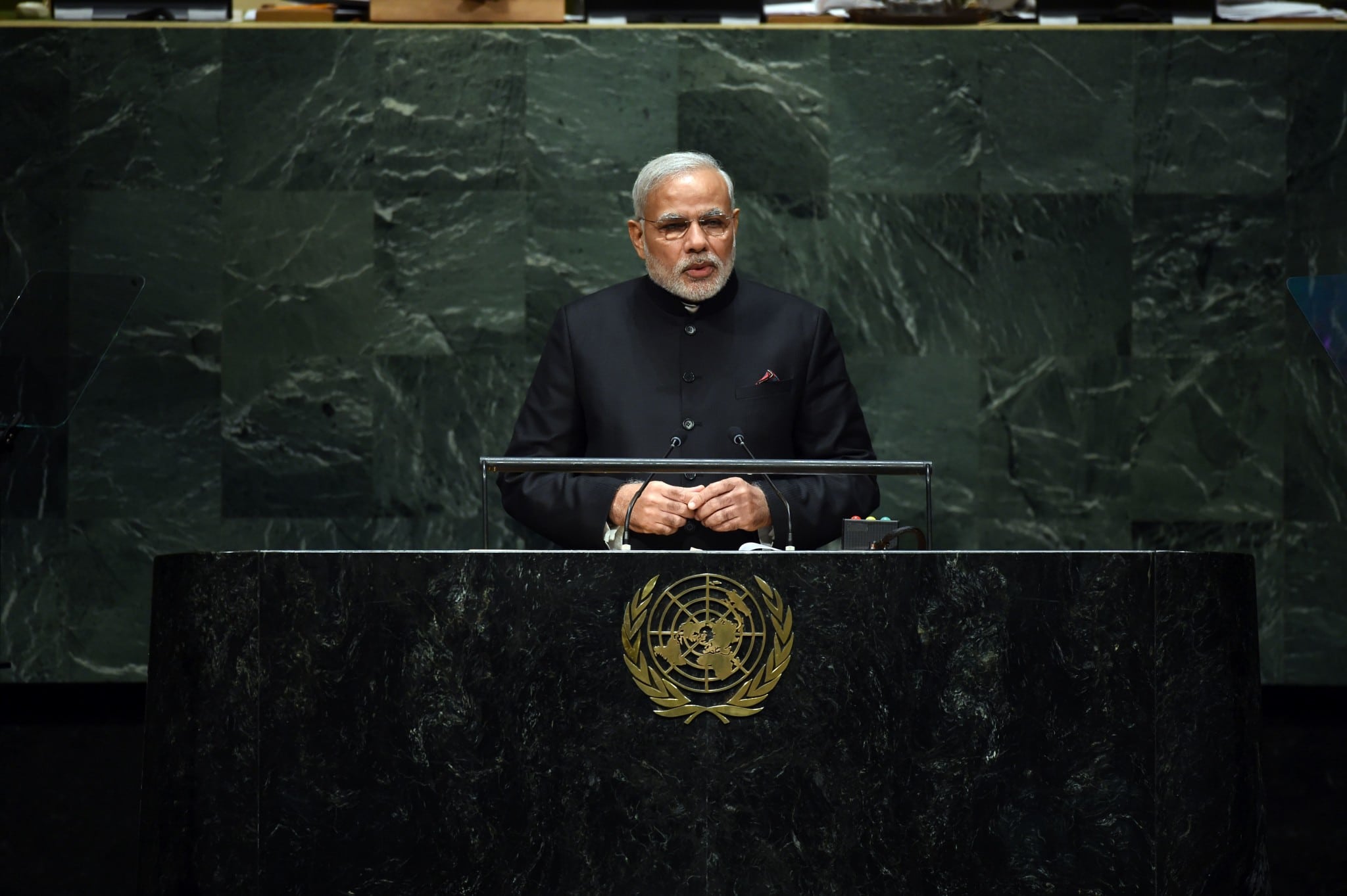
Indian Prime Minister Narendra Modi, a vocal proponent of climate change action, makes his way to Washington, D.C., this week, spurring cautious optimism that he may be preparing to announce his nation’s intention to formally join the Paris climate change agreement by the end of the year.
As part of a multi-nation trip, Modi is scheduled to arrive in the U.S. Monday evening and to meet with President Barack Obama on Tuesday, according to the Indian Embassy. He will also meet with business leaders and lawmakers, and will speak before a joint session of Congress on Wednesday.
“I think this would be a great climate win for the prime minister, a great follow through on his leadership that he showed to get the agreement in Paris,” Andrew Light, a senior fellow at the World Resources Institute, said Friday during a teleconference with reporters.
The Paris Agreement was adopted in December during the 21st session of the Conference of the Parties to the United Nations Framework Convention on Climate Change and is the first international climate deal to include both developed and developing nations. The accord opened for signature on April 22, and both the United States and India signed that day; in total, more than 170 nations have inked the agreement.
The next step is for the agreement to be brought into force. For that to happen, 55 nations representing at least 55 percent of global greenhouse gas emissions must formally ratify, accept, or approve the deal. Currently, 17 nations representing .04 percent of global emissions have joined.
An additional group of nations, including the U.S. and China, have committed to formally joining the agreement this year, to bring it into force as soon as possible. That group, along with those that have already joined, would put the total percentage of global greenhouse gas emissions represented to roughly 50 percent. “If India does join, that would put us over the hump to the 55 percent,” Light said. India represents 4.1 percent of global emissions.
India joining the agreement this year is important for a number of reasons. First, it’s been largely accepted that the European Union, which represents 28 nations in the deal, will not get its ducks in a row to join by the end of 2016, as all EU member nations must individually ratify the agreement first. The EU is the third-largest emitter in the agreement, behind China and the U.S., making it important that the other large emitters step up quickly.
Light also noted an urgency to bring the accord into force in relation to the current U.S. election season. “It’s very important I think that we do that early, that we do it before the end of this year … that we do this before the end of this president’s term,” he said.
The Paris Agreement has been firmly in the crosshairs of Republican presidential candidate Donald Trump, who recently said he would “cancel” it. If the agreement has not been brought into force before the beginning of a potential Trump presidency in January, he could simply back out. However, once the agreement has entered into force there is a four-year waiting period for any nation wanting to exit. Thus, if India were to join the agreement by the end of the year, helping to bring it into force before the next U.S. president takes office, the United States would effectively be locked into the agreement for a minimum of four years.
At the center of the question regarding whether India will join the agreement by the end of the year is uncertainty as to what the nation would have to do to do so. “As I understand it now, there’s uncertainty on what exactly the process will be for ratification in India, and I think that that’s probably the first thing, just the mechanics of it,” Light said. Ratification could require something straightforward, such as a cabinet letter, or may require Parliament be brought in, which would be a much more time-consuming process.
There was no immediate word Friday from the Indian Embassy in Washington regarding Modi’s intentions on the Paris Agreement or India’s ratification process for the deal.